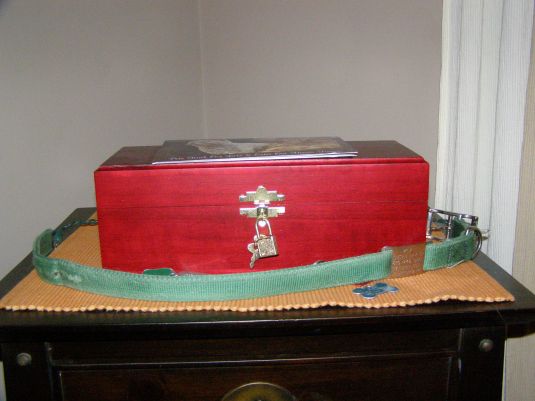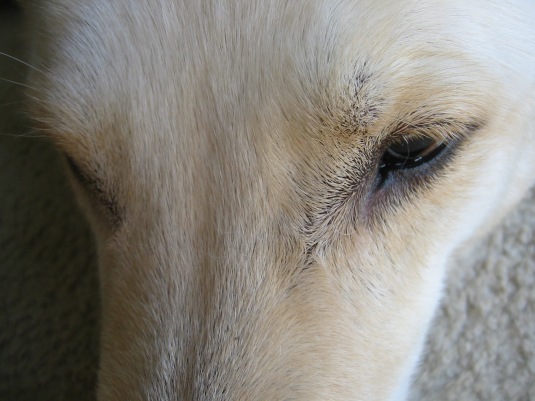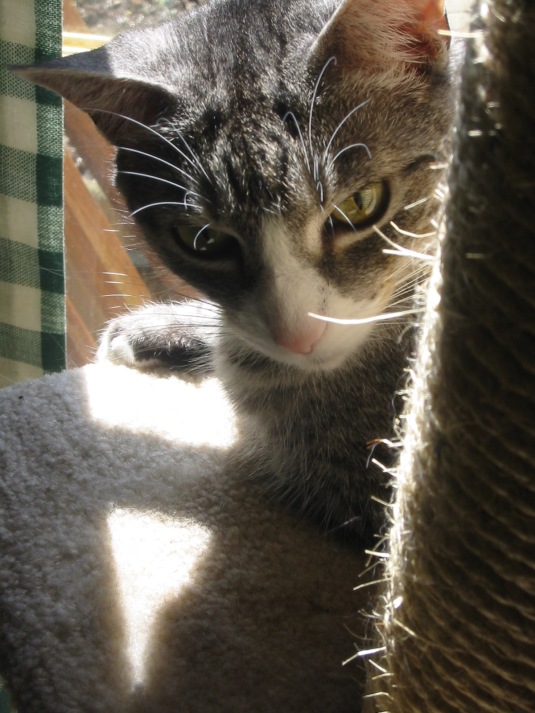
Kai visited Dr. Zeltzman a few years ago for an anal sac problem. It had abcessed and our regular vet thought it would be best to see a specialist. The basic treatment was to flush the area several times a day and then come back for a recheck. I remember the conversation with Dr. Zeltzman when Kai was looked at again a couple of weeks later. He surprisingly said, “Have you seen the area?” I of course replied with a “yes” as I had been flushing it with water each day – not something Kai or I enjoyed. The doctor was surprised as things were nicely healed up. His reaction made me chuckle, because it isn’t often that I have talked to a vet that admits surprise. It is kind of humbling. This made me remember Dr. Zeltzman fondly.
This newsletter I received in my mailbox from Dr. Zeltzman last week seems timely and I thought I would share it with you. I recommend signing up for Dr. Zeltzman’s newsletter – http://www.drphilzeltzman.com/Free_newsletter.html
and visiting his site – http://www.drphilzeltzman.com.
I have found both very helpful! At the end of the newsletter is also information to join a grief support group in the Lehigh Valley. Please consider joining!
Thank you to Dr. Zeltzman for allowing me to share his newsletter here. I had been struggling with how to begin a post about the Stages of Grief and found myself angry there was such a thing at all. I remember learning about it in high school and college psychology courses and then again when euthanasia was covered as I studied to become a veterinary technician. Always an emotional thing to learn.
How can you survive losing your pet? – #206
Most people consider that we go though 5 stages when we experience grief: denial, anger, guilt, depression and acceptance. There are variations: they can occur in a different sequence as well. And different stages can blend together.
All of these emotions are normal. So now is not the time to talk to insensitive people, especially those who don’t own pets, as they probably would not understand how you feel. It is important to remember that we all will experience different emotions, at different times, through this ordeal.
This newsletter will be peppered with actual testimonials from several pet owners and subscribers. Most quotes are from Smokie’s owner, a 6 year old mixed-breed dog who was diagnosed with cancer, which had spread throughout her belly.
WARNING: You might want to find a box of tissues before you go any further…
Let’s explore each stage.
Denial:
“I just can’t believe it” is a frequent initial reaction. Clients tell me that they thought they heard their dog’s nails on the kitchen floor. Others say they thought that they saw the shadow of their cat, running around the corner.
Smokie’s owner wrote: “I really cannot believe it happened. (…) I miss her so, so, so much. She was such a big part of the family and especially my life. (…) I can’t bear to be without her.”
“It wasn’t her time yet. We were robbed of a long, beautiful life together. I wish I could go a day without crying. I love her soooooooo much and need her. I NEVER loved anything like I loved her. I need her.”
Denial helps us ignore reality for a while, and put off the pain and the grief. At some point, we must snap out of this feeling, and face reality. “Life must go on.” Eventually, we must take care of ourselves, take care of our families and other pets, and go back to work.
Anger:
First, we are sometimes angry at ourselves. If your pet died, surely it must be your fault.
“How could I forget to close the gate and let him get hit by a car?”
“How could I have been so negligent and leave this (toy, bone, cleaning product, medication vial) within her reach?”
“How could I be so weak and accept to have him euthanized?”
During the anger phase, we feel that we have failed our pet.
This anger can turn to other people: your spouse (who forgot to close the gate), your child (who let his toys on the floor, yet again), your vet. Vets often feel the wrath of clients who decide to blame them for what happened. I suspect that this is a time when threats of a lawsuit may surface.
“I am still in shock and I wasn’t ready for this. Never did I think in a million years she wasn’t coming home with me.”
“It is not fair. I am mad, sad, angry, confused.”
Occasionally, anger can be directed at the pet, -for leaving us alone. Alone with our pain.
Guilt:
Guilt may be a feeling similar to anger in many ways. Clients often ask me what they did wrong to cause cancer in their pet. We know the cause of a few cancers: second-hand smoking, not neutering a male, not spaying a female. But the cause of most cancers is unknown, just like in people, so blaming yourself is not helping anyone.
“Did I miss something? Did I miss the early symptoms?”
“Could I have done something different? A different diet?”
“Should I have gotten a second (or third) opinion?”
And a classic: “Could I have saved his life if I had seen my vet earlier?”
Depression:
This stage is serious business. It’s okay for a while, but if it lasts too long, you may need to seek help or counseling. Severely grieving pet owners may lose their appetite, have no energy, sleep a lot, have no interest in anything, have difficulty doing simple things or performing their job. They feel extreme sadness. They feel pain. At worst, some pet owners wonder how they can survive without their pet.
“I don’t know what I am going to do.”
“Life will never be the same without her. I am devastated!”
“I miss her so much and I don’t know how I am going to find joy and happiness ever again.”
If you become that overwhelmed, hopefully you will realize it and you will get the help you need. If anything, you could get help from the resources on my web site.
Acceptance:
Acceptance is the end of the tunnel. This stage is when you realize that, ironically, death is part of life. Once you accept your loss, you are able to look at pictures or videos of your pet. Instead of crying, you may actually begin to smile. Your sadness is now tempered by memories of the good times. Life has meaning again.
Sometimes, good things can come out of pet loss, as you will gain wisdom from this experience. You may become more compassionate, more appreciative. Who knows, one day, you may even be able to help someone go through the same grieving process.
Smokie’s owner ended up writing this poem:
“SMOKIE
S is for Smiles, you put upon our faces.
M is for Messes, you made in different places.
O is for One hundred times a month, you’d misbehave.
K is for Kisses, thousands that you gave.
I is for Idiotic, sometime you would be.
E is for Extra-special love you gave our family!”
Most professionals believe that this is an appropriate time to consider adopting another pet. Of course, the pet you lost can never be replaced. There will never, ever be another pet just like him or her. Not even cloning can achieve that.
Once you truly accept that your pet is gone, and once you choose to adopt another one, you will again experience the joy of pet ownership and of unconditional love. And life goes on…
There are many additional resources on the “Pawspice and pet loss” page at http://www.drphilzeltzman.com for all readers to use. All links are totally free. As well as the following service, WINGS.
WINGS, a grief support group in the Lehigh Valley:
As mentioned above, we are starting a pet loss support group in the Lehigh Valley on April 4, 2011. My colleagues at the Lehigh Valley Vet Medical Association ( http://www.valleyvets.org ) and I were always surprised and disappointed that there was no help in our area. So we are thrilled that pet owners in need now have a new resource.
The goal is to meet with other pet lovers who are going through similar difficult times, in a safe, casual, non-judgmental and confidential setting.
In fact, there will two meetings, twice a month, from 6:30 to 8 pm: one in Easton and one in West Allentown (near Lehigh Valley Hospital). The groups are lead by two wonderful, experienced therapists, who happen to be huge pet lovers:
* In the West Allentown area: Maureen Beilman – Licensed Professional Counselor – 610-437-6660
* In the Bethlehem area: Joanne Krug – DA Psychologist – 610-865-0110
Who should attend? Pet lovers who:
* Recently lost their pet
* Feel sad around the anniversary of a pet’s loss
* Have a pet with a terminal disease
* Are considering euthanizing their pet
If you are interested, please contact the therapists directly.




